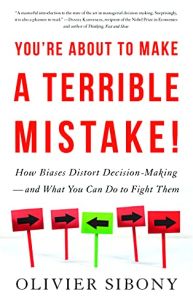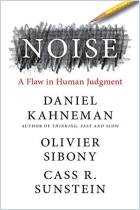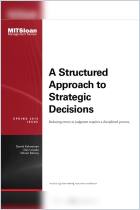Únase a getAbstract para acceder al resumen.

Únase a getAbstract para acceder al resumen.
Olivier Sibony
You're About to Make a Terrible Mistake
How Biases Distort Decision-Making and What You Can Do to Fight Them
Little, Brown Spark, 2020
¿De qué se trata?
The power of collaboration can prevent unconscious biases from undermining your strategic planning.
Recommendation
Olivier Sibony has bad news, worse news and good news. The bad news: unconscious biases undermine your strategic decisions. The worse news: biases are innate, so you have little chance of eliminating them. The good news: when you collaborate, your team members can outsmart each other’s counterproductive biases and learn to make better decisions. Sibony – co-author of Noise with Daniel Kahneman and Cass R. Sunstein – presents a new “decision architecture” that may save you from yourself – and others.
Summary
About the Author
Olivier Sibony is a professor at HEC Paris and an Associate Fellow of the Saïd Business School at Oxford University. He also co-wrote Cracked It!: How to Solve Big Problems and Sell Solutions like Top Strategy Consultants with Bernard Garrette and Corey Phelps.

























Comment on this summary